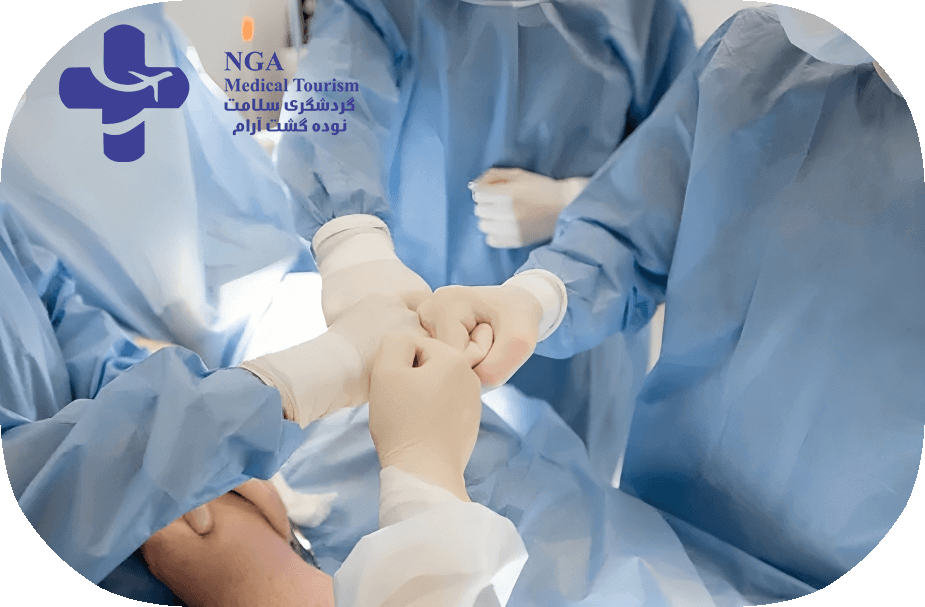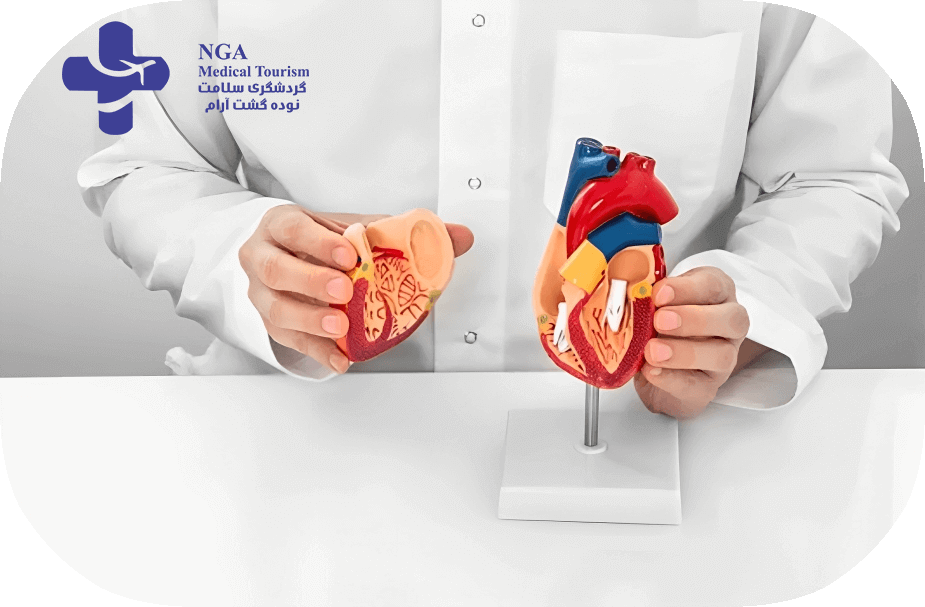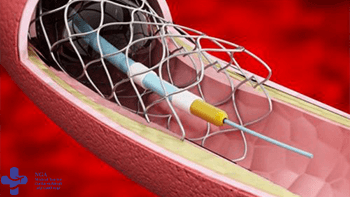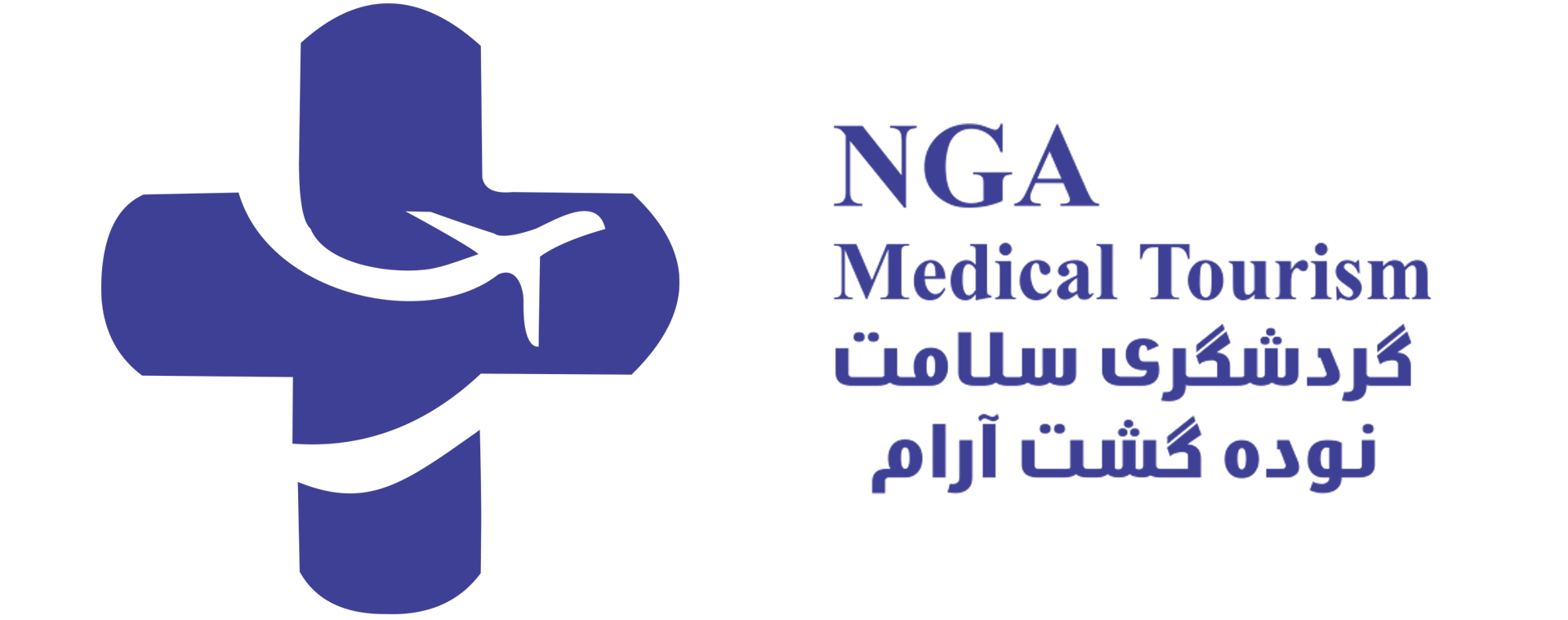General Heart Surgery
Best Hospital
We Introduce Best Hospital for General Heart Surgery
Best Doctors
We Introduce Best Doctors for General Heart Surgery
Best Price
We Try to introduce best Services with Regular Price



About General Heart Surgery
Your heart is the most important and efficient part of every person’s body, and when a person is affected by it, your life will face a great and serious threat and problem. Although a number of cardiovascular diseases can be controlled with medication, a high percentage of patients with heart problems require surgery for treatment because their heart problems show up too late. If you are looking for the best and top doctors, specialists and hospitals for your heart surgery and annual check-up and diagnostic tests for your heart, Iran is a great choice, because you can have your heart surgery at affordable price and below Follow the opinion of the top doctors in the field of cardiology. To receive a free consultation and the price of any heart surgery in Iran, call the numbers on WhatsApp at the bottom of the page or contact us with a message and read more below for more information. A heart surgeon is a specialist doctor who works on the heart and the main blood vessels around it. There are several different medical specialties that a heart surgeon may undergo, some of which have areas of focus.
General Heart Surgery Cost in Iran
Iran is the best selection for Heart Surgery
Due to the lack of doctors and specialists and good medical facilities in your country, or due to the high cost of heart surgery and postoperative services for the recovery of patients, you may consider moving to another country for medical activities, especially You are the heart that in both cases, Iran will be the right, wise and logical choice. In Iran, in addition to skilled and capable specialists and physicians in the field of diagnosis and treatment (pharmaceutical and surgical), low and cost-effective, there are world-class hospitals that provide the best quality cardiac services to foreign patients.
What is heart surgery?
Heart surgery is any type of surgery that is performed on your heart or any related blood vessel near where it connects to the heart. In some cases, these surgeries may involve tissues or structures immediately adjacent to the heart.
Why is World Health Tourism spreading so slowly? World Health Tourism Aram Pakhsh Aram is one of the top medical tourism facilitators that helps you to have an excellent medical experience both in terms of medical and nursing team and in terms of welfare services for traveling in Iran. With the world tourism of Salam Pakhsh Aram, you will no longer have to worry about the inconveniences of travel and treatment, because our professional team is here from the moment you arrive in Iran until you leave the country to take care of you and your affairs.
Cardiac Surgery in Iran
One of the tasks that a heart surgeon must perform is to have complete mastery and expertise in heart surgery, its valves and structures, and the nearby important arteries and veins. General heart surgeons focus on all the upper abdominal organs, including the lungs, esophagus, and heart. Cardiac surgeons only work with the heart.
It is important to know that cardiovascular surgeons are different from cardiologists, in that cardiologists usually make the diagnosis and refer people to a heart surgeon if needed, because most cardiologists do not perform heart surgery themselves. , They generally perform the necessary tests and diagnoses to start medication, give diets, etc. and help people manage heart disease, they may have more detailed surgical procedures such as placement Do stents to keep the arteries open.
The cardiologist is responsible for monitoring the cardiovascular condition of the patients. In general, it is the responsibility of the cardiologist to identify any defects in the cardiovascular system, heart palpitations, dizziness and cold sweats. Heart surgeons operate on the aorta, pulmonary vein and other important structures related to heart health. Cardiac surgeons usually do not diagnose heart disease, so they refer you to a heart surgeon after diagnosing the need for surgery.
Heart problems do not always require surgery. Sometimes they can be treated with lifestyle changes, medications or non-surgical methods. For example, catheter ablation uses energy to create small scars in the heart tissue to block the movement of abnormal electrical signals in your heart. Coronary angioplasty is a minimally invasive procedure in which a stent is inserted into a narrow or blocked coronary artery to hold it open. However, surgery is often performed to treat problems such as heart failure, plaque buildup that partially or completely blocks blood flow to the coronary artery, defective heart valves, dilated or diseased main blood vessels (such as the aorta), and rhythm. Abnormal heart is required.
The most important tasks of a cardiologist are:
- Perform tests to determine the patient’s heart condition: This is because the cardiologist should not guess and retell any diagnosis without reviewing the tests and tests.
- Check the test results and perform physical examinations and exercise tests on the patient
- Medication and non-surgical treatments
Cardiac and thoracic surgeon
The first task of a heart surgeon is to begin the treatment of the disease with surgery, but with surgery, the surgeon’s task does not end. The heart surgeon also has an important role to play in educating patients and should inform them about how to stay healthy after surgery.
A cardiac surgeon is trained first in surgery, then in cardiac surgery, and is able to perform surgery on the heart, lungs, esophagus, blood vessels, and other organs in the chest cavity.
An experienced heart surgeon must first confirm the need for surgery by performing a series of tests on patients before taking any action.
In addition to performing complex surgeries, the heart surgeon must be in constant and constant contact with patients and help them manage their kidney health.
You may or may not be referred to a general chest surgeon instead of a heart surgeon. Cardiovascular surgeons specialize in the surgery of many organs, organs, and tissues in the chest. Some chest surgeons may professionally focus only on the condition of the heart, the pericardium (the sac around the heart), and the main blood vessels of the heart, while others may focus on conditions other than the heart and arteries. Focus on the main blood.
Congenital / Pediatric Heart Surgeon in Iran
A congenital or pediatric heart surgeon focuses on repairing structural problems or abnormalities that a person develops at birth. This can include heart valve problems, perforations in the walls of the heart cavity, and more.
While some surgeons focus on performing these surgeries in adults – because it is not uncommon for a diagnosis of congenital heart disease to occur in adulthood – others specialize in these surgeries on children and infants. Their practice is highly specialized, and there are many pediatric heart surgeons compared to those who perform only on adults.
What experience and training do heart surgeons need?
The amount of training that all heart surgeons must receive is a total of at least 15 years. For those who choose to go into a particular heart surgery specialty, it may take more than 20 years.
Your heart surgeon will monitor your condition directly after surgery. However, when you recover at home, you usually see your cardiologist.
- Bypass surgery
- Heart transplant
- Eliminate abnormalities and defects in heart function
- Replacement of heart valves
- Opening of coronary arteries or angioplasty
- Repair of congenital heart defects in infants
- Open the blockage of the arteries leading to the heart
In general, the heart surgery procedure is performed in a period of 4 to 6 hours, and if its duration increases, it can be dangerous for the patient’s life.
For example, a cardiologist can perform a variety of heart tests (such as echocardiography, etc.) to detect coronary heart disease, diagnose holes and valvular heart problems, and monitor heart function to diagnose arrhythmias such as atrial fibrillation. do it. In addition, your cardiologist may suggest ways to treat these specific problems.
Interventional cardiologists can place stent / angioplasty implants, close small heart holes, and implant specialized devices in the heart. Other cardiologists may perform a pacemaker implant to treat more serious heart rhythm problems.
Cardiologists typically begin their training in cardiology after graduating from general medicine, which usually takes between 3 and 5 years. All of this training leads to medicine that can diagnose and treat patients with mental and cardiovascular problems in immediate and long-term conditions and even for the rest of their lives.
More than 55 years have passed since the first modern heart surgery in Iran. In the last half century, in Iran, heart surgery has made significant progress. Today, about 550,000 to 60,000 heart surgeries are performed annually in Iran. Valve surgery, coronary heart bypass and aorta surgery are the most common types of heart surgery performed in Iran.
Iran is currently a leader in the field of cardiology in the Middle East due to its significant progress in the field of diagnosis, treatment and cardiovascular surgery and the comprehensive expertise of Iranian cardiologists. Iranian heart surgeons are able to perform the most difficult, complex and risky cardiovascular operations, including open heart surgery and minimally invasive heart surgery, using modern technologies.
Due to the fact that Iran offers low-cost and affordable service and treatment packages, countless heart patients from all over the world have become significantly interested in traveling to Iran for heart surgery. People who are looking for minimally invasive or open heart surgery abroad should consider Iran a great choice for the following reasons:
1-Cost-effective and low cost for general heart surgery in Iran
Cardiovascular surgery is a very important, costly and risky treatment. That is why there are many patients around the world who, in addition to the difficulty of finding a professional specialist in general heart surgery, the issue of high costs is a major concern for them, so Iran will be a unique choice.
2-Capable and skilled heart surgeons and specialists in Iran
Iranian heart surgeons have up-to-date knowledge of the latest cardiovascular surgery techniques. Iranian specialists not only continuously improve their theoretical and practical knowledge to keep up with the latest scientific findings and medical technologies, but also make significant contributions to the advancement of heart and heart surgery, some of which are recognized worldwide.
The unparalleled ability and skill of Iranian heart surgeons has led to extensive advances in heart surgery in Iran and the country’s lack of need in the field of cardiovascular. Today, the most dangerous and delicate heart surgeries are performed by capable Iranian surgeons in Iranian hospitals.
The first heart transplant surgery in Iran was performed in 1993 by Dr. Mohammad Hossein Mandegar (known as the father of heart transplantation in Iran) at Dr. Shariati Hospital in Tehran. Today, about 100 heart transplants are performed annually in several hospitals in Iran.
According to the latest travel risk map, hearing that Iran is one of the safest countries for both travel and treatment, so that you, along with the World Health Tourism Support Team, broadcast the best kind of services and the highest quality treatments in Iran. Has.
In addition, Iran has a lot to offer tourists. Great historical and cultural attractions, hospitable people, various culinary delights and exquisite handicrafts will surely impress medical tourists who want to make the most of their trip to Iran for heart surgery.
Read More: Rhinoplasty Surgery In Iran
Read More: Revision Rhinoplasty In Iran 2023 | Best Surgeons And Low Cost
Read More: What Is The Best Nose Shape?
Read More: Upturned Nose Surgery In Iran
All types of heart surgery:
- open heart surgery
- Valve repair or replacement(Heart valve stenosis- Heart valve insufficiency)
- Arrhythmic surgery
- Aneurysm repair
- TransMyocardial Laser Revascularization (TMLR)
- Carotid endarterectomy
- Heart transplant
- Ventricular implant surgery (artificial heart)
- Heart surgery without pump
- Less invasive heart surgery


When is open heart surgery necessary?
– Open heart surgery is performed for the following:
– To repair or replace heart valves
– Installing medical devices and equipment that help the heart beat properly
– Heart transplant
What are the risks of open heart surgery?
- The risks of open heart surgery include:
- Chest ulcer infection is more common in patients with obesity or diabetes or those who have previously had CABG.
- Stroke or heart attack
- Lung or kidney failure
- Irregular heartbeat
- Chest pain
- Memory loss
- blood clotting
- Pneumonia


Angiology
Coronary angiography is a technique of imaging that uses X-ray to view blood vessels and identify any abnormality ...
Heart Valve Replacement Surgery
Heart valve replacement is a surgical procedure which involves replacing one or more of ...
Ischemic Heart Disease
Ischemic means that an organ is not getting enough blood and oxygen. Ischemic heart disease...
Heart Bypass Surgery
Heart bypass surgery has been a life-saving treatment for more than 60 years.It is the most frequently performed openheart..
Heart Transplant
In heart transplant surgery, the patient’s heart is replaced by a natural heart from a donor who died recently or may be by an
Open Heart Surgery
Open (traditional) heart surgery is when the chest is cut open and surgery is performed on the muscles, valves, or arteries of the
Angioplasty
Coronary angioplasty is a treatment intended to fix narrowed or clogged arteries with the aim of enhancing blood flow
Echo
Echocardiography test is a procedure that uses ultrasound waves to take real-time images called echocardiogram …
General Heart Surgery aftercare/Recovery
When you wake up after surgery, you will have two or three tubes in your chest. These are to help drain fluid from around your heart. You may have intravenous (IV) lines in your arm to supply fluid, as well as a catheter (thin tube) in your bladder to remove urine.
How can open heart surgery be performed in Iran?
The World Health Broadcasting team will take care of all the worries and pressures of a trip to the worries and problems and difficulties of various heart operations for you and provide you with unique and excellent facilities, including Provides accommodation and medical services for you to the best of your ability. For you, the first and most important thing is to call:
+9899021236092
+989120131751
+ 989120131750
+ 989129369336
and recounting your problem and receiving free consultation and preparation to come to Iran for initial examination and diagnosis and if necessary surgery, which is performed by the best and most capable doctors and specialists in the world health tourism team. Our expert consultants will guide you through all stages of your trip to Iran and open heart surgery.
Preoperative Preparation of Heart
You will meet with a nurse to complete the preoperative information and you will be asked to retrieve all the information you need to start the operation, including the medications you are taking, medication allergies, ECG, etc. Of course, before these questions, you will do all the necessary check-ups by the anesthesiologist, and these questions, which are asked by the nurse, are just to complete your case. As you may not be concentrating enough before the operation, please have a list of all the medications and doses you are taking, as you will be asked to respond with high concentration and extreme alertness.
Prepare yourself emotionally and physically before surgery:
- Eat balanced meals
- Balance activities with rest
- Follow your doctor’s advice about exercise
- Quit Smoking
Most likely, your doctor will prescribe an anticoagulant.
Like Coumadin, Aspirin or Plavix, but be sure to ask your doctor before using it, only if your doctor allows you to do so.
If you are traveling to Iran through the professional team of Nodeh Gasht Aram for heart surgery, a few weeks before the turn, the necessary instructions will be provided by a personal coordinator. As soon as you arrive in Iran, one of our translators will take you from the airport to the hotel and accompany you. Then, according to a pre-arranged schedule, you will be taken to the doctor’s office for preoperative consultation, where the doctor will give you instructions and may ask you to perform certain tests and imaging procedures.
Your doctor may ask you to wash your body with a special soap the day before surgery. This soap is intended to disinfect the skin and reduce the possibility of infection after surgery. You may also be asked not to drink or eat anything after midnight before surgery.
At the time of surgery, depending on the type of surgery, a cardiopulmonary device may be used to monitor the function of the heart and lungs during surgery. Also known as an oxygen pump or cardiopulmonary bypass device, it is commonly used for heart bypass surgery to maintain blood circulation because in some operations, including open heart surgery, the heart needs to be operated on during surgery. There is a temporary stop. Heart surgeries usually take a long time, for example open heart surgery may take between 2 and 6 hours. Depending on the type of surgery and your general health, you should stay in the hospital after surgery for 1 to 3 weeks depending on your condition and the operation performed and your general condition after the operation, which is usually checked by a specialist. Or you spend the first two nights in the ICU and then you are transferred to a regular care room for the next few days you need to stay in the hospital.
During your hospital stay, the nursing team will regularly monitor your health
Why should we choose Nodeh Gasht Aram Health Tourism in Iran?
It is very difficult to find a doctor who can diagnose the disease quickly and can do it. In fact, the need for surgical treatment of the disease at that time is very difficult for the treatment of the disease and postoperative care.
In fact, dear tourists need a complete team of people from different fields to achieve the success of complete surgery and improve the quality of life of patients after consent. Health Tourism Team Nodeh Gasht Aram Health Tourism in Iran has made this very easy for you.
– To receive and set up a special package for yourself, please contact Nodeh Gasht Aram.
– Document review, referral to medical centers and pre-travel consultations are free.
– Nodeh Gasht Aram is with you and your supporter 24 hours a day from the moment you arrive in Iran until you leave Iran.
– The amount of treatment is paid to the medical center and depending on the type of medical services received.

Read More: IVF in Iran
Read More: What Is Ivf Procedure
Read More: Where Is The Cheapest Country For IVF In 2023?
Read More: Ivf Injections
Heart Surgery – Types, Recovery, & Risks | Made for This Moment
What are some types of heart surgery?
Coronary artery bypass grafting (CABG). …
Heart valve repair or replacement. …
Insertion of a pacemaker or an implantable cardioverter defibrillator (ICD). …
Maze surgery. …
Aneurysm repair. …
Heart transplant. …
Insertion of a ventricular assist device (VAD) or total artificial heart (TAH).
Coronary artery bypass graft surgery (CABG), also called coronary artery bypass, coronary bypass or bypass surgery, is the most common type of heart surgery. More than 300,000 people have successful bypass surgery in the United States each year.
General cardiothoracic surgeons focus on all of the organs of the upper abdomen, including the lungs, esophagus, and heart. Cardiac surgeons work only with the heart. Another name for a cardiac surgeon is a cardiovascular surgeon.
Minimally invasive heart surgery involves making small incisions in the right side of the chest to reach the heart between the ribs, rather than cutting through the breastbone, as is done in open-heart surgery. Minimally invasive heart surgery can be done to treat a variety of heart conditions
Common types of open-heart surgery include: Heart bypass surgery (coronary artery bypass graft — CABG) Heart valve surgery. Surgery to correct heart a defect present at birth
Heart bypass surgery: Procedure, recovery time, and risks
Heart bypass surgery is a relatively safe and effective procedure that reduces the risk of heart attack and death. The procedure might also ease symptoms of coronary artery disease, such as chest pain.
Open-heart or coronary artery bypass graft surgery.
Cardiothoracic surgeon | Health Careers
Cardiothoracic surgeons specialise in operating on the heart, lungs and other thoracic (chest) organs. They also diagnose and treat diseases of these organs.
A cardiothoracic surgeon in the U.S. is a physician who first completes a general surgery residency (typically 5–7 years), followed by a cardiothoracic surgery fellowship (typically 2–3 years).

Angiography
Coronary angiography is a procedure that uses a special dye (contrast material) and x-rays to see how blood flows through the arteries in your heart.

Angioplasty is a procedure used to open blocked coronary arteries caused by coronary artery disease.

Cardiovascular disease (CVD) refers to a group of conditions that affect the heart and blood vessels. These conditions can include coronary artery disease (CAD), heart failure,arrhythmias, heart valve problems, and peripheral artery disease, among others.

Transplant recipients are at increased risk of developing CAD, which is the buildup of plaque in the arteries that supply blood to the heart. CAD can lead to angina, heart attack, or other complications.

Heart surgery refers to a variety of surgical procedures that are performed to treat heart conditions. These procedures can be performed either on the heart itself or on the blood vessels that supply the heart.

Aneurysm surgery is a treatment for aortic aneurysms. A surgeon removes the damaged part of your aorta and replaces it with a synthetic fabric tube called a graft. The surgery is very effective when performed before aneurysm rupture. Recovery for most people includes five to 10 days in the hospital and four to six weeks at home

A permanent pacemaker is a small electronic device that helps your heart maintain a regular, healthy rhythm. It’s implanted in your chest to regulate electrical problems with the heart, such as beating too quickly or too slowly.

Open-heart surgeries treat heart problems including heart failure, congenital heart defects, arrhythmias, aneurysms and coronary artery disease. During the procedure, a surgeon cuts through the breastbone and spreads the ribcage to access the heart. Open-heart surgery may include CABG (bypass surgery), heart transplant and valve replacement.










